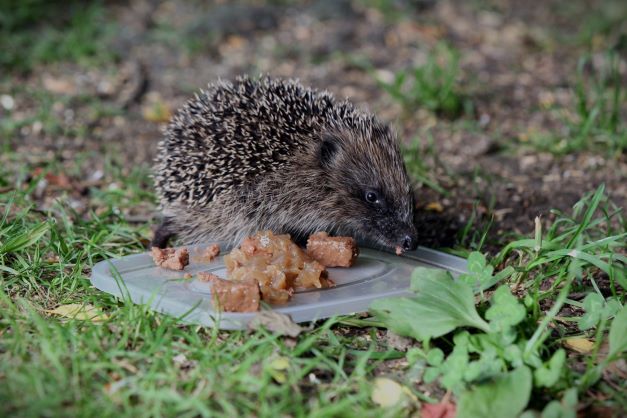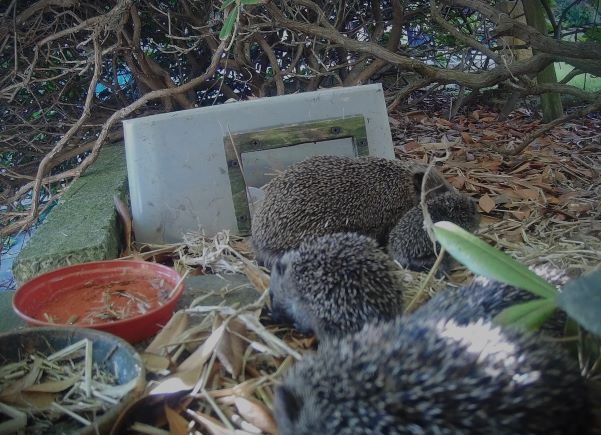Daytime hoglets
7th July 2022

Hoglet season is finally upon us, and we couldn’t be happier. The pitter patter of tiny feet will be gracing our gardens as hoglets prepare to leave the nest for the first time with mum. Hoglets are born all through the spring and summer, so may be seen at different stages. They’re born pink and blind and spend the first weeks of life safely in the nest, feeding on their mother’s milk. At around four weeks old, they’ll start to join mum on trips out of the nest. As much as you may be curious, it’s vital to avoid checking nests or hedgehog houses in the garden. Mothers are particularly susceptible to disturbance during this time and may even abandon the nest if they feel threatened. Be patient and hopefully you’ll see them when hoglets start venturing out with mum.

Summer is a time of year when hedgehogs may be seen out during the day. While hedgehogs are nocturnal and a hedgehog in the day is often cause for concern, this isn’t always the case, especially as the days grow longer. Here’s a few tips for identifying whether a daytime hedgehog needs intervention…
When to be concerned
Red flags to look out for in the day include hedgehogs appearing lethargic, with flies around them, wobbling on their feet, or any hoglets without an adult. If the hedgehog is showing any of these signs, it’s best to follow this advice and call The British Hedgehog Preservation Society on 01584 890 801.
If the hedgehog is out in the day but moving with purpose and appears to be collecting grass or leaves, it’s best to leave it. This is likely a mother feeding and gathering nesting materials. If you’re unsure, keep an eye on the hedgehog from a safe distance and contact BHPS for advice.
If you see a hedgehog that is obviously injured or trapped, it needs help regardless of whether it’s day or night.
Here’s an example of a busy hedgehog out in the day. It’s moving quickly and gathering nesting materials. Removing it from the garden may separate it from its dependent young.

